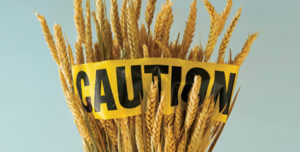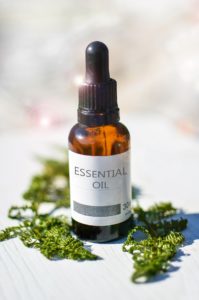
Leaky Gut Checklist: What Causes a Leaky Gut?
Our body is designed to be efficient for eliminating toxins, digesting food, and absorbing nutrients. These essential functions are made possible by our intestines. The gut lining separating our microbiome from the intestines takes a beating from toxins in the environment, sugars in our food, and allergens in our diets. These are just some of the many items on our Leaky Gut checklist. Do you have Leaky Gut Syndrome? Let’s try to figure it out!
Leaky Gut Checklist
There is a perfect storm of factors that contribute to the development of Leaky Gut Syndrome. While these contributing sources are different in nature, they all work in the same way. They all have adverse interactions with the microbes in our gut.
Ultimately, these factors cause damage to the gut lining that may result in long-term health issues. Here are some of the primary culprits that cause Leaky Gut Syndrome. See how many marks the boxes in your Leaky Gut checklist.
What is on the Leaky Gut Checklist?
Our Leaky Gut checklist is a who’s who of who you should stay away from. If many of the things you read resonate with you, there’s a good chance you have Leaky Gut Syndrome. The first step to healing a Leaky Gut is figuring out if that’s what’s causing you such gastrointestinal distress. Let’s see!
Inflammatory Foods
Perhaps the most significant catalyst in developing Leaky Gut Syndrome are the foods we consume. The Western Diet is set up to produce inflammation.

That’s because the Standard American Diet (SAD) is rich in:
- Artificial Ingredients
- Preservatives
- Saturated Fats
- Dyes • Hormones
- •
When these particles enter the system, they trigger an immune response. Our innate immune system jumps to the rescue and promotes inflammation to destroy the intruders.
However, as we pile more of these intruders in, the immune system just works harder by producing more inflammation. It’s like retailers opening the doors on a Black Friday morning. The chaos ensues!
In addition to these inorganic, fatty, or synthetic molecules disrupting the gut lining, there are several other factors that cause us to go down the Leaky Gut checklist. These are allergens.
Allergen-Rich Foods
Unfortunately for our poor guts, food sensitivities are up 500% over the last couple of decades. This number has been on a steady upward trajectory since 1990. Suffice to say; these allergens may be at the top of your Leaky Gut checklist.
Research on this alarming issue stated,
“In the past, more often than not, children were only allergic to one or maybe two foods {…}, whereas now it’s very common to see children allergic to two or three or more foods 1.”
– EMBO Reports
A reason for this swift change is that our dietary habits have transformed immensely. For one, we have a growing dependence on foods that use artificial ingredients. Another cause for this uptick in food sensitivities is our use of hormones in the animal agriculture industry. Lastly, most foods in this world contain the top two food allergens in the world– gluten and lactose.
Gluten
We’re all too familiar with gluten, but may be unfamiliar with its role in Leaky Gut Syndrome. When gluten comes into contact with cells surrounding your gut lining, the body will secrete the protein, zonulin, into the system.

Research on zonulin finds that it destroys an integral part of the gut lining, known as our tight junctions.
Tight junctions are tiny holes within the gut lining. These pores are used to help the body transport nutrients obtained by the digestion of the food in the small intestine to the bloodstream.
However, zonulin stretches these tight junctions out, allowing toxins to leave the intestines and enter the bloodstream as well.
An analysis of the damage caused by zonulin concluded,
“Mis-communication between innate and adaptive immunity, exposure to environmental triggers, and loss of intestinal barrier function secondary to the activation of the zonulin pathway by food-derived environmental triggers or changes in gut microbiota, all seem to be key ingredients involved in the pathogenesis of inflammation, autoimmunity, and cancer 2.”
– Ann N Y Academy of Science
As you can see, too much zonulin can be destructive to gut health. However, this protein doesn’t work alone in causing Leaky Gut Syndrome. Lactose also does a number to our intestinal flora.
Lactose
We are the only mammals to drink milk past childhood. Furthermore, we’re the only creatures who consume another mammal’s milk.

That’s why so many of us have a difficult time digesting lactose.
When you have lactose intolerance, you may experience several uncomfortable stomach problems.
These GI issues include bloating, gas in stomach, and pain.
- Over time, these issues can become chronic, causing
Toxins
Foods aren’t the only thing causing Leaky Gut Syndrome. Toxins in our environment can break down the immune system and destroy beneficial intestinal flora.

As a result, you are left with a gut biome rich in opportunistic stomach bacteria. When these harmful microbes colonize, it can become a recipe for Leaky Gut.
Toxins aren’t just dirty smoke being pumped out of factories. There are plenty of toxins in our everyday lives for which we’re unaware because we think of toxins as something intangible.
According to the U.S. National Library of Medicine,
“Toxins are substances created by plants and animals that are poisonous to humans. Toxins also include some medicines that are helpful in small doses, but poisonous in large amounts 3.”
– U.S. Library of Medicine
Most of us perceive toxins as synthetic vapors in an aerosol can that we can’t see or black mold infesting the other side of our ceiling tiles. However, toxins are far more common and hidden than we’d ever imagined.
Common toxins include:

- •
- Mold in Our Walls
- Mercury in Some Fish
- Some Wild Mushrooms
- Excessive Alcohol
- Long-Term Use of Medications
- Pesticides in Food
- Bacteria • Some Essential Oils
- •
- Heavy Metals
Obviously, there are many more toxic substances in the universe. However, your thoughts on what exactly is toxic might have changed a bit, huh?
Stress
Stress is the ultimate gut health killer. When we stress over things, it alters the way our body works.

That’s because stress triggers an immune response from our system. As we discussed, the immune system’s first line of defense is inflammation. Unfortunately, long-term stress can disrupt how our cells are made.
A fascinating study found,
“When a cell gets stressed, either by overheating or starvation, its proteins no longer fold properly. These unfolded proteins can set off an alarm — called the unfolded protein response or UPR — to slow down the assembly line. The study could lend insight into diseases that result from misfolded proteins piling up, such as Alzheimer’s disease, ALS, Huntington’s disease, Parkinson’s disease, and type 2 diabetes 4.”
– Cell Magazine
These findings are essential for mapping the correlation between stress and Leaky Gut Syndrome. Our gut depends on cells to help repair the leaky lining. So, when cells aren’t up to optimal production standards, it can have a horrible Domino effect on your health.
Bacterial Infections
Probiotic bacteria- protect the system from the foreign substances, free radicals, and opportunistic stomach bacteria from taking over the gut biome. As inflammation destroys your probiotic bacteria and the tight junctions, it creates an open field for toxic bacteria from your digestive tract to enter the system.
Bacterial infections are typically caused by:
- •
- Small Bacterial Intestinal Overgrowth (SIBO)
- Intestinal Parasites
When you are diagnosed with a bacterial infection, you must follow your doctor’s instructions. However, you should also assume you now have Leaky Gut Syndrome. So, be sure to replenish your beneficial bacteria with probiotics supplements.
Resources
- 1 Hadley C. (2006). Food allergies on the rise? Determining the prevalence of food allergies, and how quickly it is increasing, is the first step in tackling the problem. EMBO reports, 7(11), 1080–1083. doi:10.1038/sj.embor.7400846.
- 2 Hadley C. (2006). Food allergies on the rise? Determining the prevalence of food allergies, and how quickly it is increasing, is the first step in tackling the problem. EMBO reports, 7(11), 1080–1083. doi:10.1038/sj.embor.7400846.
- 3 “Toxins: MedlinePlus Medical Encyclopedia.” MedlinePlus, U.S. National Library of Medicine, medlineplus.gov/ency/article/002331.htm.
- 4 Duke University. “Cells Put off Protein Production during Times of Stress.” ScienceDaily, ScienceDaily, 11 Sept. 2014, www.sciencedaily.com/releases/2014/09/140911125815.htm.



